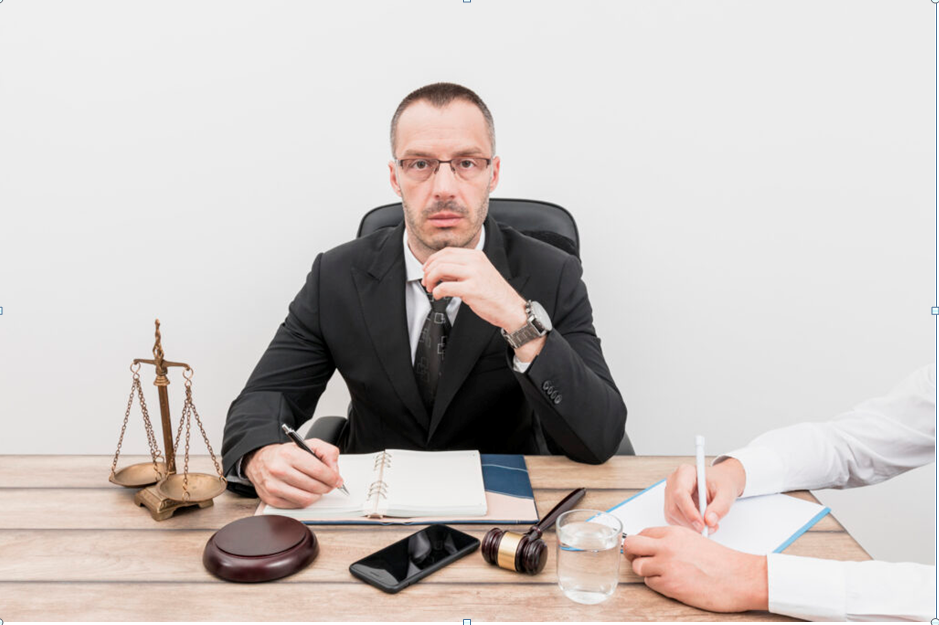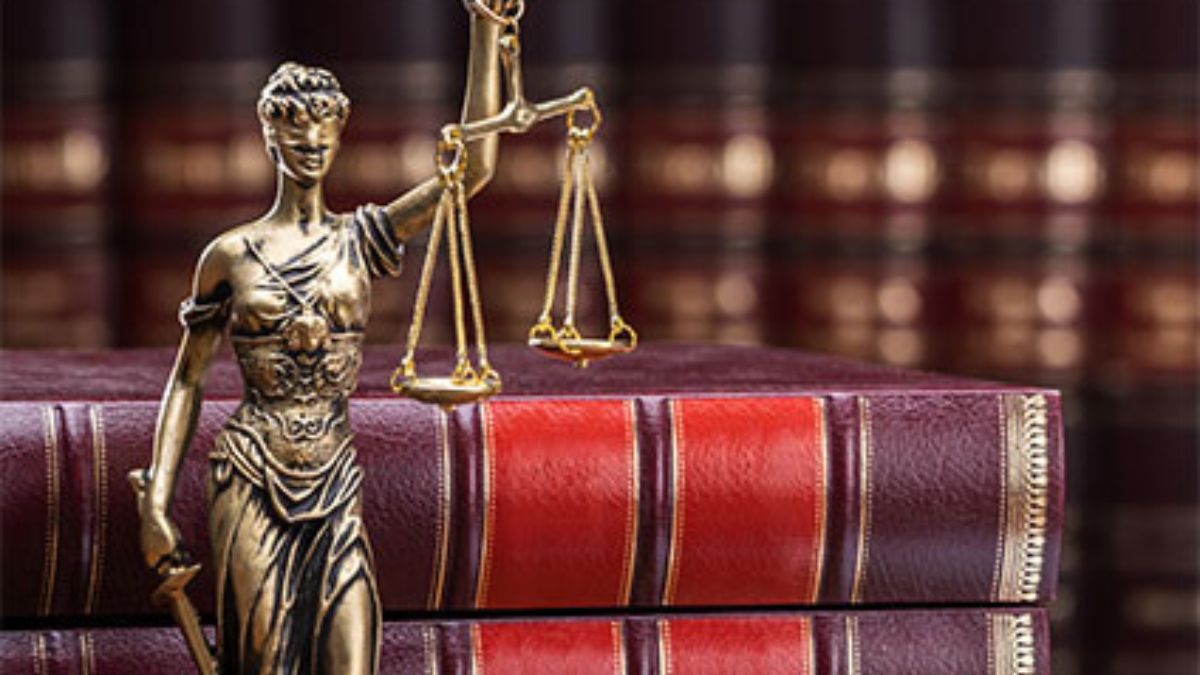LAw
Top Questions to Ask When Choosing a DUI Defense Attorney

If you are charged with DUI, getting the right lawyer can make all the difference in the world. A strong legal defense can help you get the best possible result, but you need to start by hiring a skilled and experienced DUI lawyer. During the first meeting, you should ask the right questions to find the best candidate for your needs. This article will highlight the most important questions to ask a DUI defense lawyer before you hire them.
If you want to hire a lawyer in State College, you need to hire one who knows how the local court system works. This area is known for having Pennsylvania State University. There are a lot of students living there, and DUI rules are pretty strict, especially during major events. Because of these unique circumstances, it is very important to talk to an experienced DUI attorney in State College. You can ensure you get the best-qualified professional representing your interests by asking the right questions.
1. What Is Your Experience with DUI Cases?
One of the first things you should do is find out how much experience the lawyer has with DUI cases. Ask the following:
- How long have you been handling DUI cases?
- How much of your practice is completely focused on defending people accused of DUI?
- Have you dealt with cases like mine in State College?
Lawyers with a lot of experience in DUI law can better understand the evidence, work out deals with prosecutors, and figure out what your case’s strengths and flaws are.
2. Do You Have Any Special Training in DUI Law?
Technical aspects of DUI cases often include breathalyzer tests and field sobriety evaluations. A lawyer with specialized training may be better able to challenge this evidence. Ask these questions:
- Have you earned any certifications in DUI defense law, such as one from the National College for DUI Defense?
- Have you been trained in how the Standardized Field Sobriety Test is used by law enforcement?
- Have you worked closely with experts like toxicologists or accident reconstruction specialists?
3. How Do You Approach DUI Cases?
To figure out how good an attorney is, you need to know their strategy. Questions to ask regarding this are:
- Do you aim to negotiate plea deals, or are you ready to go to court?
- What defenses might work for me in this case?
- How often do you get reduced charges, such as a “wet reckless” outcome?
A lawyer who regularly goes to court may have a better reputationamong prosecutors, which could help them get better plea deals.
4. What Are Your Fees and Payment Structure?
It’s important to be clear about the financial details.You should ask these follow-up questions:
- Do you charge by the hour or a flat fee?
- Are there any other fees, such as fees for an expert witness or filing fees?
- Do you offer payment plans or other payment options?
5. Have You Had Any Disciplinary Issues?
You should check to see if the lawyer is in good standing with the bar group. Ask:
- Have you ever been kicked out of the bar, banned, or punished by any state bar?
- How can I verify your professional history?
For extra peace of mind, you can also cross-check this information using the records of attorneys who have been disciplined in your state.
LAw
Who Is At Fault In A Rear End Collision In Monmouth County

Rear-end collisions are common in Monmouth County, often leaving drivers confused about fault. Understanding who is responsible is crucial for protecting your rights and seeking compensation. Typically, the driver who hits from behind is at fault. This driver is expected to maintain a safe distance and pay attention to traffic conditions. However, exceptions exist, such as sudden stops or malfunctioning brake lights. Knowing these details can help you make informed decisions after an accident. Whether you are the driver in the front or the back, understanding your situation is important. Consulting with experts can clarify your options and guide you through the process. To learn more, visit chamlinlaw.com/monmouth-county-car-accident-lawyer. Finding the right support will help you address the emotional and financial impact of an accident. Stand firm in your right to seek justice and resolution. Protect yourself and your loved ones by staying informed and proactive.
Common Causes of Rear-End Collisions
Inattention is a frequent cause of rear-end collisions. Drivers distracted by phones, food, or even conversations may fail to notice sudden changes in traffic. Speeding also contributes to these accidents. Faster speeds reduce reaction time, increasing the likelihood of a rear-end collision. Weather conditions, like rain or snow, can make roads slippery, increasing stopping distances. Understanding these factors helps you stay alert and avoid accidents.
Exceptions to the Rule
While the trailing driver is usually at fault, some exceptions exist. A driver in front may bear responsibility if they suddenly reverse or make unexpected stops. Brake lights that don’t work can also shift blame to the leading driver. These exceptions highlight the importance of staying alert and maintaining your vehicle properly. They also underscore why understanding your accident’s specifics can clarify who is responsible.
Steps to Take After a Collision
Immediately after a collision, ensure everyone’s safety. Check for injuries and call emergency services if needed. Document the accident by taking photos and gathering witness information. Exchange contact and insurance details with the other driver. These steps are crucial for protecting yourself legally and financially. They provide the necessary information for insurance claims and potential legal action.
Legal Aspects and Fault Determination
Understanding the legal aspects of fault can help you navigate post-accident procedures. Police reports and witness statements play a role in determining fault. Insurance companies analyze these to decide on claims. Sometimes, consulting a legal expert can offer insights that might not be immediately obvious. Legal professionals can interpret local laws and ensure your rights remain protected.
Comparing Fault Scenarios
| Scenario | Fault |
| Trailing driver distracted | Trailing driver |
| Lead driver reverses suddenly | Lead driver |
| Brake lights malfunctioning | Lead driver |
| Adverse weather conditions | Depends on actions of drivers |
Seeking Compensation and Support
In Monmouth County, if you’re involved in a rear-end collision, knowing your rights is crucial. You may need to seek compensation for damages or injuries. Filing a claim with your insurance or the other driver’s company can be complex. Understanding the process helps you avoid pitfalls and delays. Professional guidance can simplify this, ensuring you receive fair treatment.
For more details on how to handle accidents and legal claims, you can visit USA.gov Insurance Information and NHTSA Traffic Safety Facts.
Conclusion
Rear-end collisions can be perplexing, but knowing who is at fault helps you take necessary steps. Stay informed about the common causes and exceptions. After an accident, focus on safety, documentation, and understanding your legal rights. By doing so, you protect yourself and can move forward with confidence. Seek expert advice when needed to navigate the complexities of insurance and legal matters. Knowledge is your most powerful tool in these situations.
LAw
10 Things To Know About Criminal Sentencing In New York

Understanding criminal sentencing in New York can feel overwhelming. You may face anxiety and uncertainty when navigating this complex legal landscape. Knowing the essentials helps you or a loved one make informed decisions. New York’s system is unique and requires clarity. For example, the difference between misdemeanor and felony charges affects potential sentences. Additionally, state laws continually evolve. Being aware of these changes impacts your case’s outcome. You might wonder how plea deals work or what factors influence a judge’s decision. These elements often shape sentencing results. Consulting with a professional, such as a Long Island Criminal Defense Attorney | Andrew Karpf, can offer guidance and help ease your worries. This introduction to criminal sentencing in New York aims to provide you with clear, practical insights. You will gain knowledge and confidence as you learn more about this vital topic. Understanding these key points better prepares you for what lies ahead.
1. Misdemeanor vs. Felony
Recognize the important difference between misdemeanors and felonies. Misdemeanors are less severe and may lead to less jail time. Felonies result in stricter penalties and longer sentences. Knowing your charge type is crucial for understanding potential outcomes. Check the New York State Court’s website for more information.
2. Sentencing Guidelines
New York follows specific sentencing guidelines. Judges use these to determine appropriate punishments. These guidelines consider the crime type and offender’s history. This approach aims to ensure fairness and consistency across cases.
3. Role of Plea Bargains
Plea bargaining plays a significant role in the criminal justice system. Prosecutors and defense attorneys negotiate to reach an agreement, often resulting in reduced charges or lighter sentences. Understanding plea deals can significantly impact your case’s direction.
4. Factors Influencing Sentences
Judges consider multiple factors when deciding sentences. These include the crime’s nature, offender’s background, and any mitigating factors. Your behavior and attitude during proceedings also influence the outcome.
5. Mandatory Sentencing Laws
New York enforces mandatory sentencing laws for certain crimes, such as drug offenses. These laws require specific sentences, limiting judicial discretion. Familiarize yourself with these regulations to better understand potential penalties.
6. Probation and Parole
Probation and parole offer alternatives to incarceration. Probation allows offenders to remain in the community under supervision, while parole involves conditional release from prison. Both options include specific rules and requirements.
7. Special Courts
New York has specialized courts to address specific offenses. These include drug courts, mental health courts, and domestic violence courts. These courts focus on rehabilitation and treatment rather than punishment. Learn more by visiting the New York Courts Problem-Solving Courts page.
8. Appeal Process
Understanding your right to appeal is essential. If you believe your sentence is unjust, you can file an appeal. This process involves having a higher court review your case for errors. However, appeals must meet certain criteria to proceed.
9. Juvenile Sentencing
Juvenile offenders face a different legal process. New York aims to rehabilitate young offenders, focusing on education and community involvement. Sentences often involve probation, counseling, or community service.
10. Victims’ Rights
New York law considers victims’ rights during the sentencing process. Victims may provide input and express their concerns. Their statements can influence sentencing decisions and ensure their voices are heard.
Understanding these ten points about criminal sentencing in New York prepares you for navigating this complex system. You gain confidence and clarity by knowing what to expect. Stay informed and seek professional guidance when needed. This knowledge helps you or your loved ones face challenges with greater peace of mind.
LAw
Common Injuries From Auto Accidents In Phoenix

Car accidents in Phoenix often lead to injuries you can’t ignore. You should know what to expect. Common injuries include whiplash, broken bones, and concussions. Whiplash happens quickly. Your neck moves suddenly during a crash. Broken bones occur frequently. Arms, legs, and ribs are most at risk. Concussions are serious too. Your brain hits the skull during impact. These injuries need attention. Seek medical help right away. Proper care speeds up recovery. Legal support can also be crucial. You might face medical bills and lost wages. Consider visiting clswins.com/phoenix-car-accident-lawyer/ for guidance. This resource helps you understand your options. Remember, injuries affect your life greatly. Handle them properly. Make informed decisions. Your health and well-being matter. Focus on recovery and support. Acting swiftly protects your future. Learn more about these injuries to prepare yourself. Awareness is your best tool after an accident. Get the help you need now.
Understanding Whiplash
Whiplash is one of the most common injuries from car accidents. It occurs when your head moves violently. This sudden motion strains your neck muscles and ligaments. Symptoms include neck pain, stiffness, and headaches. Sometimes, these symptoms appear days after the accident. You should see a doctor immediately. Early treatment helps you recover faster. Untreated whiplash can lead to chronic pain.
Broken Bones and Fractures
Accidents can cause broken bones. The force of the collision impacts your body. Arms, legs, and ribs are particularly vulnerable. Fractures vary in severity. Some require surgery, while others heal with rest and immobilization. Recognizing the signs is crucial. Look for pain, swelling, and inability to move a limb. Medical attention is essential. Doctors will use X-rays to assess the damage. They will recommend the best course of treatment.
Concussions and Brain Injuries
Concussions happen when your brain hits the inside of your skull. This can occur even without direct impact to the head. Symptoms include dizziness, confusion, and headaches. You might also experience memory loss. Concussions need immediate evaluation. Ignoring them can lead to serious complications. Always have a healthcare professional assess your condition. The Centers for Disease Control and Prevention provides helpful resources on concussions and brain injuries.
Other Common Injuries
- Soft Tissue Injuries: These include sprains and strains. They affect muscles, tendons, and ligaments.
- Back Injuries: Discs in the spine can herniate. You might experience severe back pain.
- Internal Injuries: Organs can be damaged by the force of impact. Internal bleeding is a risk.
Comparison of Common Injuries
| Type of Injury | Symptoms | Treatment |
| Whiplash | Pain, stiffness, headaches | Rest, physical therapy |
| Broken Bones | Pain, swelling, immobility | Surgery, immobilization |
| Concussions | Dizziness, confusion, memory loss | Rest, monitoring |
Steps to Take After an Accident
- Check for injuries. Your safety comes first.
- Contact emergency services. They will assist you and others involved.
- Seek medical evaluation. Some injuries are not immediately apparent.
- Document the accident. Take photos and gather information.
- Reach out for legal help. This guides you through the recovery process.
Accidents are stressful. Proper actions make a difference. Your response impacts recovery and legal outcomes.
Conclusion
Auto accidents in Phoenix lead to numerous injuries. Knowing the types and their symptoms prepares you better. Quick medical care and legal advice protect your health and rights. Focus on healing and securing your future. Proper knowledge and action ensure safety and recovery. Stay vigilant and informed. Your well-being depends on it. Share this knowledge with others. Safety and awareness benefit everyone involved.
-

 BLOG1 year ago
BLOG1 year agoATFBooru: A Hub for Animated Art and Community
-

 CONSTRUCTION1 year ago
CONSTRUCTION1 year agoBuilding a Home Gym in Your Basement (7 Key Renovation Tips)
-

 BLOG1 year ago
BLOG1 year agoFictionmania: A Deep Dive into the World of Transformative Stories
-

 GAMES1 year ago
GAMES1 year agoSnow Rider 3D: Unblocked Tips and Tricks for Gamers
-

 LIFESTYLE1 year ago
LIFESTYLE1 year agoVersatile Living: Stylish Indoor Outdoor Rugs with Eco-Friendly Appeal
-

 BLOG1 year ago
BLOG1 year agoGIFHQ: A Comprehensive Guide
-

 LIFESTYLE1 year ago
LIFESTYLE1 year agoAchieve Elegance with Chic Blue Formal Dresses and Redken Professional Hair Care for All Hair Types
-

 BLOG1 year ago
BLOG1 year agoVincent herbert new wife: A Detailed Overview
